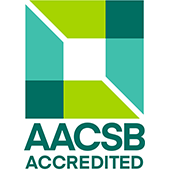Executive MHA (EMHA) Curriculum
The Executive MHA comprises of 30 required total credits: 24 core credits and 6 elective credits.
Required Core Courses (30 Credits)
| Communication Skills for Business Professionals | GEB 6217 |
| Introduction to Healthcare Systems | HSA 6103 |
| Healthcare Finance | HSA 6175 |
| Organizational Behavior in Healthcare | HSA 6118 |
| Research Methods for Healthcare Management | HSA 6707 |
| Planning and Marketing in Healthcare | HSA 6108 |
| Health Policy | HSA 6152 |
| Health Law | HSA 6425 |
Leadership Bootcamp Requirement
The Leadership Bootcamp course is a one-credit requirement students take in their first semester of the program. Students begin the program with the Leadership Bootcamp. The bootcamp is designed to teach critical leadership skills through practical experience, preparing students for the challenges and opportunities of providing quality healthcare in the 21st century. By inviting a cadre of industry leaders form multiple healthcare disciplines, you will be exposed to current information, trends, and expertise from professionals who are leading the way in their respective healthcare settings.
Elective Courses (6 Credits)
| Introduction to Public Health | HSA 6930 |
| Global Health Issues in Healthcare Delivery | HSA 6930 |
| IT in Healthcare and Analytics | HSA 6930 |
| HR Management in Healthcare | HSA 6930 |
| Management of Long Term Care Facilities | HSA 6930 |
| Public Health in Pandemics | HSA 6930 |
| Medical Practice Management | HSA 6930 |
| Service Design & Patient Experience | HSA 6937 |
| Healthcare Operations | HSA 6937 |
| International Study Abroad Trip |
Core Course Descriptions
Communication Strategies for Business Professionals (GEB 6217) 3 credits
This course focuses on a semester-long project that links writing and speaking strategies
to (1) critical thinking for problem analysis/solution and persuasive proposals and
(2) research for decision making.
Introduction to Health Care Systems (HSA 6103) 3 credits
Prerequisite or Corequisite: GEB 6217
Introduces students to the field of health services administration and to the responsibilities
of managers of health care organizations. Includes the analysis of both the history
and the structure of health delivery systems.
Healthcare Finance (HSA 6175) 3 credits
Prerequisite or Corequisite: HSA 6103
Introduces health administration students to the public and private sources of payment
for health care in the U.S. Includes Medicare, Medicaid, managed care options and
the Patient Protection and Affordable Care Act.
Organizational Behavior in Healthcare (HSA 6118) 3 credits
Prerequisite or Corequisite: HSA 6103
Study of internal operations of healthcare organizations varying from hospitals to
nursing homes, outpatient clinics, and assisted living facilities. Examines issues
such as physician credentialing, utilization review, quality of clinical care, and
accreditation of services.
Research Methods for Healthcare Management (HSA 6707) 3 credits
Prerequisite or Corequisite: HSA 6103
Provides students with an appreciation of the function of research in the provision
of healthcare services, a set of skills for conducting health sciences research, and
an opportunity to practice applying those skills to a current issue in the healthcare
field.
Planning and Marketing in Healthcare (HSA 6108) 3 credits
Prerequisite or Corequisite: HSA 6103
Study of the rapidly evolving U.S. healthcare market and its impact on the structure
and functions of healthcare organizations. Examines changing patient demographics
such as population aging, technological developments in such areas as pharmaceuticals,
and government regulation of patient care.
Health Policy (HSA 6152) 3 credits
Prerequisite or Corequisite: HSA 6103
An examination of the process of formulating and implementing health policy. Emphasis
is on the utilization of health services research in the policy formulation process
at the federal level.
Health Law (HSA 6425) 3 credits
Prerequisite or Corequisite: HSA 6103
A comprehensive examination of health law issues affecting healthcare providers. Reviews
case law decisions, statutes, and regulations involving such issues as patient care
liability, malpractice, workmen's compensation, and legal responsibilities of health
professionals.
Elective Course Descriptions
Introduction to Public Health (HSA 6930) 3 credits
This course introduces students to the principles of public health practice, with
emphasis on its history, philosophy, ecological nature, and scope. Discussions will
center on applications of public health, prevention, and environmental and social/behavioral
determinants of health. The various components of the course aim to stimulate interactions
among the class around important problems and issues facing public health.
Global Health Issues in Healthcare Delivery (HSA 6930) 3 credits
This course examines major global health challenges, programs and policies. You will
be introduced to the vast diversity of determinants of health and disease on a global
level. You will analyze current and emerging global health priorities, including emerging
infectious diseases, poverty, conflicts and emergencies, health inequity, health systems
reforms, and major global initiatives for disease prevention and health promotion.
You will also have the opportunity to critically assess health systems in different
parts of the world.
IT in Healthcare and Analytics (HSA 6930) 3 credits
The course would discuss various health informatics standards and health information
systems. Further, the health information system specification and design would be
discussed. Specifically, the course would discuss the system components for a Health
Information Systems such as Electronic Medical Records and Patient Health Records.
Course would cover the concepts of interoperability of various healthcare informatics
systems, issues and challenges associated with them.
HR Management in Healthcare (HSA 6930) 3 credits
The purpose of this course is to provide an overview of human resource management
in a variety of healthcare settings. This course has a hands- on approach to human
r resource management through the use of case studies, which allows students the opportunity
to apply the required readings and lectures to challenges faced by human resource
personnel and key stakeholders in a variety of settings.
Management of Long-Term Care Facilities (HSA 6930) 3 credits
The primary focus of this course is to provide an overview of the various parts of
long-term care, as well as an in-depth study of the principles of nursing home management
and assisted living services which examines administrative and staffing functions
relating to clients, community, public policy, programming, and financing.
Public Health in Pandemics (HSA 6930) 3 credits
This course introduces students to the principles of public health practice with an
emphasis on epidemics and pandemics that have impacted the human race. This will include
its history, philosophy, ecological nature, and scope. Discussions will center on
applications of public health, prevention, and environmental and social/behavioral
determinants of health. The various components of the course aim to stimulate interactions
among the class around important problems and issues facing public health.
Medical Practice Management (HSA 6930) 3 credits
This course provides an overview of the complex processes involved in developing a
viable organization, and emphasizes the application of theory and best practices to
the demands of this business environment. An in-depth focus will be placed on the
strategic components required to build a successful structure, the requisite ongoing
operational assessments and the methodologies used to effect change.
Service Design & Patient Experience (HSA 6937) 3 credits
This courses provides students with ability to clearly define experience and to state
a business case for patient experience strategies. Emphasis on understanding of key
patient metrics (e.g, HCAHPS, Press Ganey) and assessment of service delivery issues
related to patient experience in a variety of settings, using tools such as the Gap
Model of Service Quality and Service Blueprinting. Assess a service network for its
impact on patient well-being.
Healthcare Operations (HSA 6937) 3 credits
This course provides a foundation on which to develop such competencies. The course
introduces students to fundamental Operations Management principles in the healthcare
services context. Students will learn to recognize, diagnose, design, and apply operations
concepts to create new and improve existing delivery systems. These concepts include
operations strategy, process management, lean six sigma quality, patient satisfaction,
patient safety, supply chain management, and innovation.













